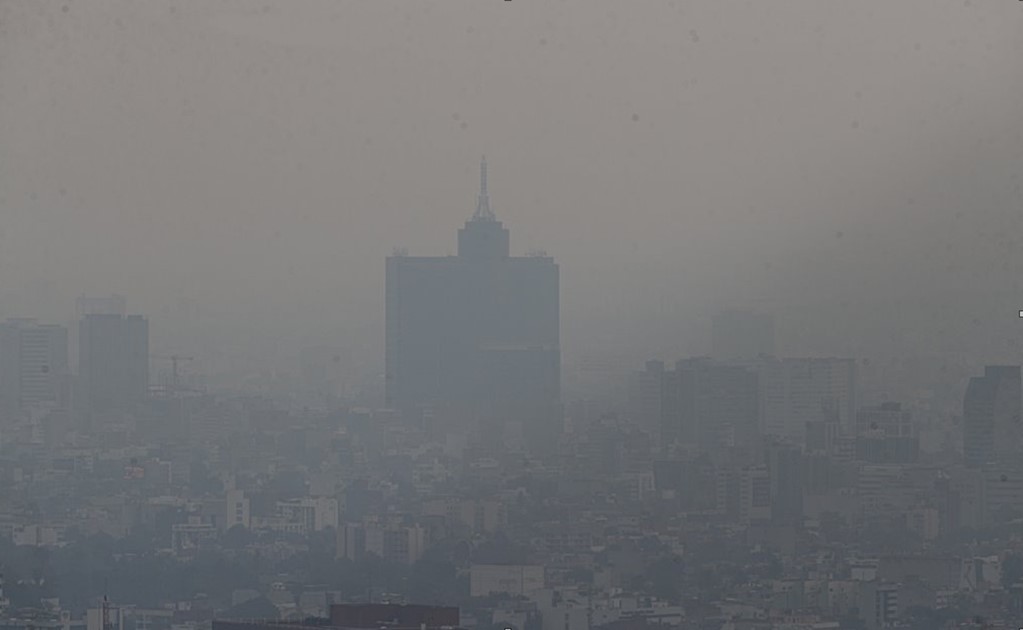23 Wild Fires Burn in Guerrero, Mexico
Fires have raged for nearly a week in the coastal state of Guerrero in south-central Mexico. On May 8, 2019, the Secretary of Civil Protection reported 23 active forest fires throughout the state. The fires have been difficult to control because of strong winds.
One fire has destroyed hundreds of hectares in the community of El Calvario, a town located in the state capital municipality, Chilpancingo. Local officials declared that the fire had been fully contained as of May 8, 2019. “Fully contained” does not mean the fire has ceased, but that the fire’s perimeter has been completely surrounded by a barrier or buffer zone that helps keep the fire from passing a certain point.
This image shows smoke from the fires as observed on May 9, 2019, by the Moderate Resolution Imaging Spectroradiometer (MODIS) on NASA’s Terra satellite.
Read More:
https://earthobservatory.nasa.gov/images/145043/fires-burn-in-guerrero-mexico?fbclid=IwAR1RBxz1oAWbSavkOh5x1QQvgyW1nf04qtLGNT1XdoQHqFKeoqFeedeMEuEMexico City registers 20 fires in two days
On Friday night, Mexico City inhabitants noticed smoke and a burnt-like smell throughout the city and authorities claimed it was haze
 On Saturday, the city was a ghostly vision, caused by the haze covering it and accompanied by a burning smell. According to official numbers, between Friday and Saturday, there were 23 fires in forest and urban areas in the capital; as well as 30 fires in the State of Mexico, including a fireworks workshop in Tultepec and a fire inside a plastic factory in Atizapán.
On Saturday, the city was a ghostly vision, caused by the haze covering it and accompanied by a burning smell. According to official numbers, between Friday and Saturday, there were 23 fires in forest and urban areas in the capital; as well as 30 fires in the State of Mexico, including a fireworks workshop in Tultepec and a fire inside a plastic factory in Atizapán.Pollution in the city is nothing new, it has been a constant struggle during the last three decades. Even when the presence of airborne particles during this season is unusual, couldn't this contingency be prevented?
The millions who inhabit the megalopolis were exposed to PM2.5 particles for over 48 hours, which have a similar structure to aerosols, therefore, they enter the lungs and diminish the levels of oxygenation and in children, it stops the development of the respiratory system.
This situation made weaknesses in the regulations to declare contingencies evident, as authorities lack protocols to act in the presence of airborne particles; an “environmental alert” was issued on Sunday. Yesterday, Mexico City's government recognized that it has to establish new criteria to issue an environmental alert for the 2.5 particles.
In the face of pollution, no matter the cause behind it, society can no longer rely on weather, wind or rain, to solve a problem caused by humans. Authorities should emphasize prevention measures and social awareness strategies and not only focus on reactive actions.
The megalopolis has been able to control but not decrease pollution levels with the help of neighboring governments, environmental groups, experts, business owners, and society but it is clear that a lot more work is needed.
This weekend it was obvious that there are protocols that should be updated. There is no time to waste, it can become a life or death situation.


No comments:
Post a Comment